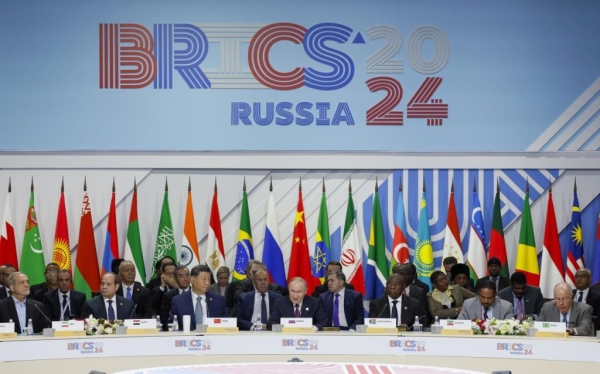The Federal Government has announced its intention to join BRICS as a partner country, taking a step toward strengthening international collaboration and economic development.
The Ministry of Foreign Affairs acknowledged the situation in a statement signed by its spokesperson, Kimiebi Ebienfa, on Saturday.
BRICS, a bloc of major emerging economies, provides Nigeria a platform to expand trade, investment, and socioeconomic cooperation with member countries.
According to the statement, the decision underscores Nigeria’s commitment to leveraging opportunities for growth in key areas such as energy security, infrastructure development, technology, and climate change.
Here are 7 things to expect following Nigeria’s BRICS involvement:.
1. BRICS, an intergovernmental organisation was formed in 2009 as a group to foster cooperation and diplomacy among emerging economies in the world. The group expanded to welcome South Africa in 2010.
2. On Friday, the Brazilian government confirmed Nigeria as a partner of BRICS, a political and economic group formed by Brazil, Russia, India, China and South Africa.
According to the Brazilian government, Nigeria will join the group as the ninth partner country after indicating its intention to do so in October.
3. The partner-country category was established at the 16th BRICS Summit held in Kazan in October 2024.
During the BRICS summit held in Kazan, Russia, from October 22 to 24, 2024, it officially expanded its alliance, adding 13 new nations as partner countries, though not as full members.
The countries are Algeria, Belarus, Bolivia, Cuba, Indonesia, Kazakhstan, Malaysia, Nigeria, Thailand, Turkey, Uganda, Uzbekistan, and Vietnam.
4. Nigeria’s inclusion places it among eight other nations with similar partner status in regions such as Latin America, Eastern Europe, and Asia.
5. As a partner of the group, Nigeria can push to reduce its dependency on the United States dollar and encourage trade in its local currency. This could also help it mitigate against forex pressures, which continue to be a major factor in the country’s economic crisis, as per the group’s objective to establish an alternative currency to replace the dollar.
6. Also, while Nigeria is not a full member, it may qualify for funding under specific conditions to finance infrastructure and development projects through its New Development Bank (NBD) and Contingent Reserve Arrangement (CRA).
7. According to a Council on Foreign Relations (CFR) report published in December, one of BRICS’ main objectives is to serve as an alternative to the World Bank and International Monetary Fund (IMF).
However, Nigeria’s partnership with BRICS does not affect its existing commitments to other groups such as the IMF.


